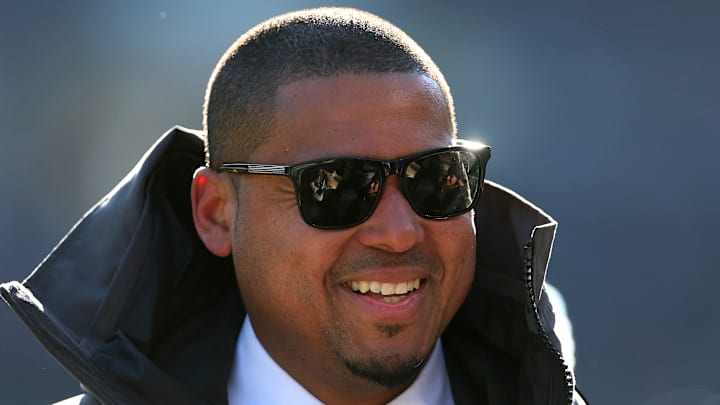As Ryan Poles is entering year two as the General Manager of the Chicago Bears, we will look at the best three moves he has made and the worst three moves. The first year has been a wild ride for Poles as General Manager (GM) as he essentially torpedoed the roster he inherited from former GM Ryan Pace and tore it down to the nuts and bolts.
It is important to preface that his best moves don’t make him the savior of the Bears, and equally, his worst moves also don’t mean that he’s clueless. Personally, I like the direction the Bears have gone with Poles, not all GMs can be patient, and essentially roll around in the dirt and lose a bunch for the long-term success of the franchise. As we know, Pace failed many times to punt on his rosters and sell pieces that should’ve been sold.
Taking a step back and tearing down the roster was needed so there could be a foundation to take a step forward in the future. That being said, it is very easy to have a flash sale on your players. Although the returns have been promising, turning the returns into success and results is a whole different beast.
Best Move by Chicago Bears GM, Ryan Poles: Trading for D.J. Moore
Ryan Poles in the past year has essentially written the book on how to trade the first overall pick. The return for the pick has been impossible to complain about, not only did the Bears get one of the better players in the league, but Moore plays a premium value position which is why he was so valuable.
D.J. Moore’s value right now is quite easily worth a first and more, as there were rumored to be first-round picks offered for him at last year’s deadline. If you look at what teams offered for Chase Claypool who is far and away worse than Moore, it makes sense why Moore is easily worth a ‘first and plus’.
Not only was the return on DJ Moore great but trading the pick very early on in the draft process was genius because the top five picks have not been molded so teams wouldn’t know what they could get at any other pick outside of number one. If Poles didn’t trade number one so early, other teams could’ve navigated around the top five to get the quarterback they wanted all along, without trading for number one.
It would not surprise me to see other teams that fit the same glove as the Bears, who didn’t need a quarterback, trade the pick at the same time as Poles just did.
